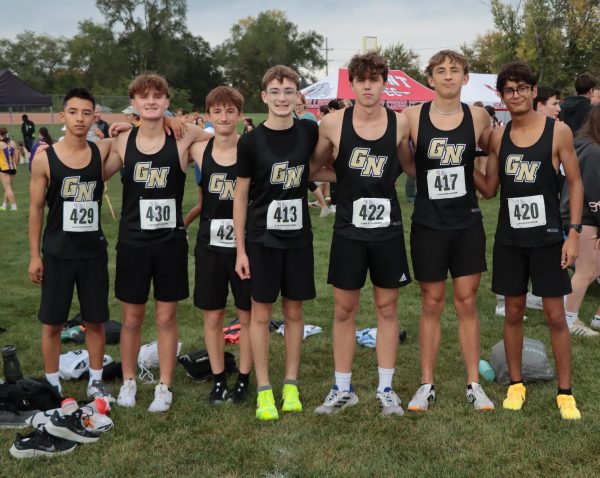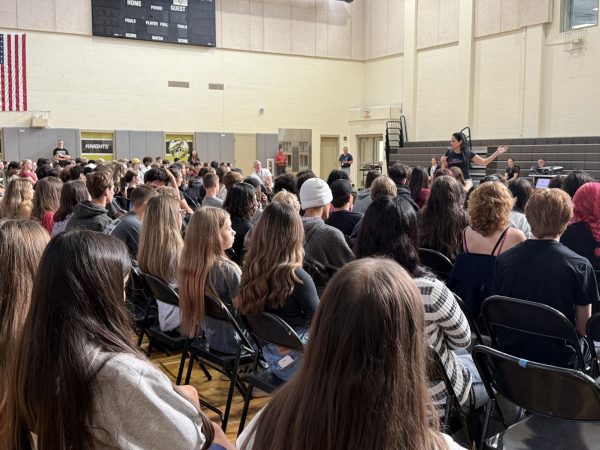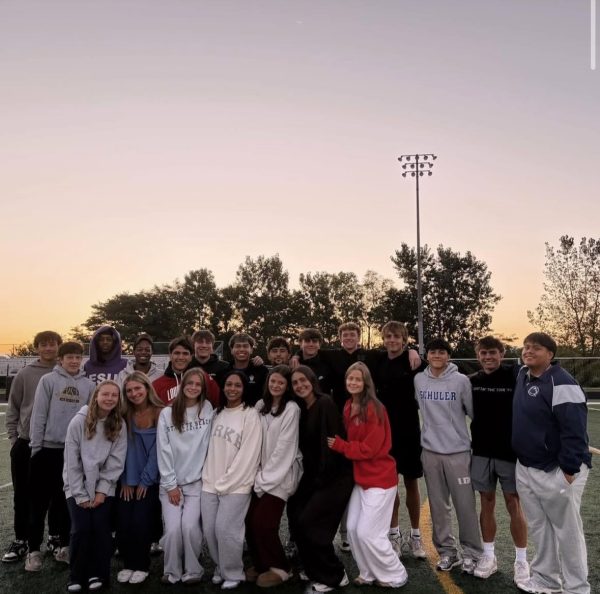Members of Math Team qualify for State
Math Team has had an exciting year, between a conference tournament hosted at North and multiple wins at the Regionals competition. Two teams and five students, Graham Gatewood, Nathan Gulliver, Thomas Gornett, Kevin Scanlan, and Aidan Kim, qualified for State.
Math Team competitions consist of four different categories.
“There’s an individual competition, a two-person competition, an eight-person competition, and then a five-person calculator competition,” said senior Nathan Gulliver. “Typically you compete in two to three of them. One of my favorites is the calculator team. It’s five people, one person from each class and then one additional person from any class.”
Club sponsor Alexander DeGroh described some of these categories.
“There’s an individual competition, which is twenty questions, fifty minutes. You can use your calculator, you’re all by yourself,” he said. “There are two person competitions, which are kind of closer to Jeopardy where you have to put up your answers before everyone else.There’s also eight person competition, which we won second place for.”
To prepare for these competitions, students work both individually and with their teammates during Friday meetings.
“At the beginning of the year, or whenever you first join, you get handed this huge packet depending on what you’re competing in. We just kind of do that in our free time and during Math Team meetings,” said sophomore Addison Kamalis, who has been involved with the team since her freshman year.
“We always have packets of problems, and then we just work through them at our own pace, work on it together, have fun with it,” Gulliver said.
Math Team students are exposed to high-level problems and concepts, some of which are not in North’s curriculum.
While both Gulliver and Kamalis agree that it can be difficult, for the majority of students on the team, including the two of them, the challenge is part of the appeal.
“I like challenging math problems, and Math Team questions are different from the boring ones in class,” Gulliver said. “It’s a good way to improve your math skills in ways you don’t in the classroom. It gets you thinking outside the box, and when you get to stuff like the SAT, it makes those problems feel easier because you’re used to looking at weird, difficult things.”





